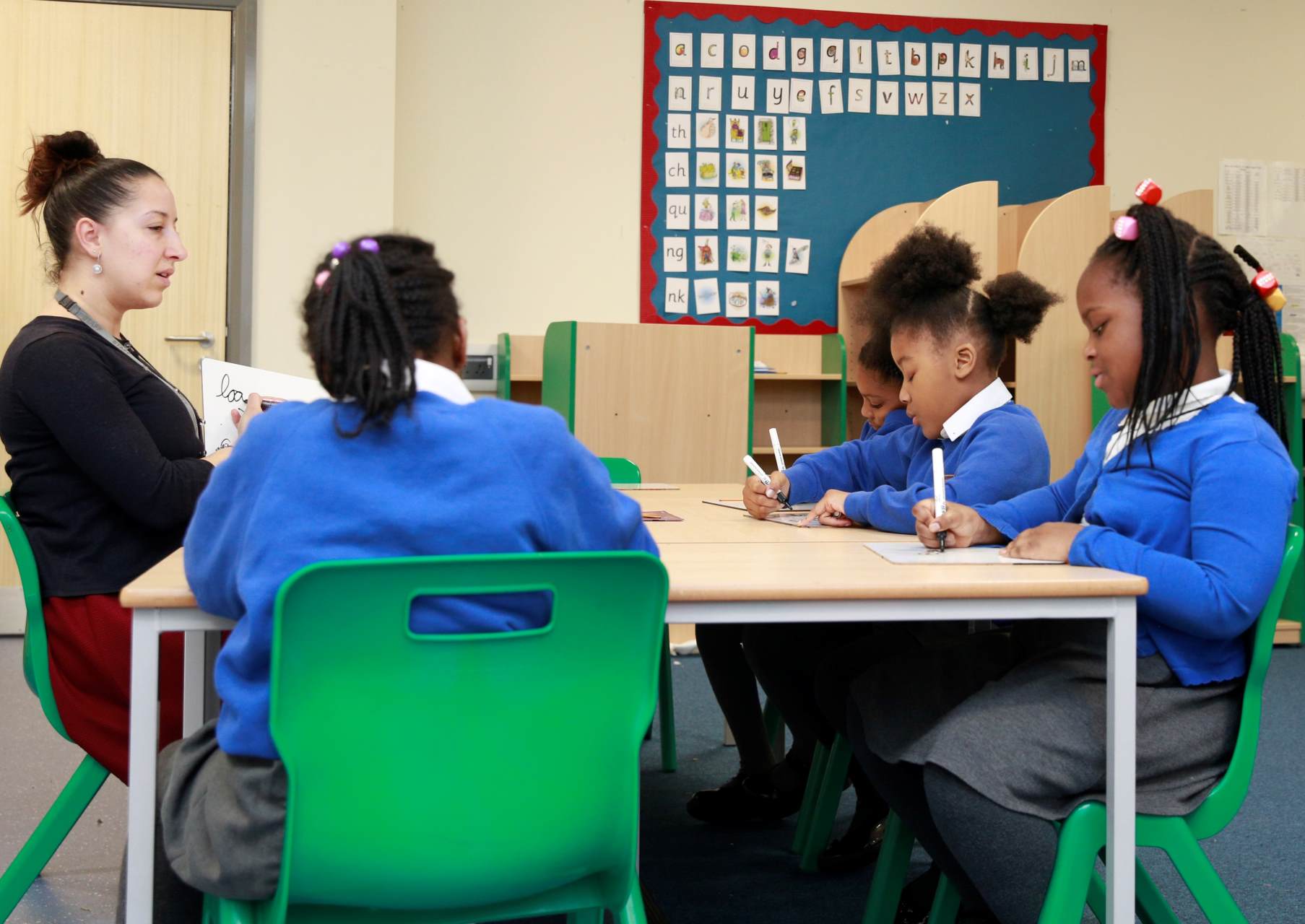Reading
Learning to read is one of the most important things your child will learn at our school. Everything else depends on it, so we put as much energy as we possibly can into making sure that every single child learns to read as quickly as possible.
We want your child to love reading – and to want to read for themselves. This is why we work hard to make sure children develop a love of books as well as simply learning to read.
We start by teaching phonics in Reception using the highly successful ‘Read Write Inc’ phonics programme. Children learn how to ‘read’ the sounds in words and how those sounds can be written down. This is essential for reading, but it also helps children learn to spell well.
The children also practise reading (and spelling) ‘tricky words’, such as ‘once,’ ‘have,’ ‘said’ and ‘where’.
Once children can blend sounds together to read words, they practise reading books that match the phonics and the ‘tricky words’ they know. They start to believe they can read and this does wonders for their confidence.
Teachers regularly read to the children, too, so the children get to know and love all sorts of stories, poetry and information books. This helps to extend children’s vocabulary and comprehension, as well as supporting their writing.
Up until the end of Year 2, your child will work with children who are at the same reading level. This is so that the teaching can be focussed on their needs. Some older children will continue to access Read Write Inc groups if they need further consolidation and development of reading skills. We check children’s reading skills regularly so we that we can ensure they are in the right group. Children will move to a different group if they are making faster progress or may have one-to-one support if we think they need some extra help. In Key Stage 2 (years 3, 4, 5 and 6,) the children undertake regular guided reading sessions with the staff in their class, have a wide selection of reading materials to choose from and projects linked to reading, with rewards systems for encouragement.
How long will it take to learn to read well?
Every child is different and children will learn to read at different speeds. By the end of Year 2, most children will be able to read aloud books that are at the right level for his or her age. In Year 3 and beyond, we concentrate more on helping children to understand what they are reading, although this work begins very early on.
In the summer term of Year 1, the government asks us to do a phonics check of all the children. We will let you know how your child has done. Children who do not pass the phonics check in Year 1 retake the assessment during Year 2 to ensure that they have made progress. If your child is a candidate for this, then we will let you know in advance and also feedback the findings.
What can parents/carers do to help?
Within the first two weeks of your child starting Reception, you will be invited to a meeting so that we can explain how we teach reading and show you the resources we use. During the meeting, there are lots of suggestions on how you can help your child to read. Your support really does get your child off to a flying start and encourages them to make great progress!
You can help your child to sound out the letters in words and then to ‘blend’ the sounds together to make a whole word. Try not to refer to the letters by their names. Help your child to focus on the sounds. You can hear how to say the sounds correctly by searching on YouTube for ‘Read Write Inc. Phonemes Pronunciation Guide’. These 'speed sounds' are used throughout school - even in upper Key Stage 2 - and also link into spelling work, a good understanding of these sounds really does make a difference!
Sometimes your child might bring home a book that they already know well. Please don’t say, ‘This is too easy,’ as they may have chosen that because they enjoy it! Instead, encourage your child to tell you the story out loud; ask them questions about things that happen or what they think about some of the characters in the story.
Make reading fun! Remember to keep reading to your child. They will come across far more adventurous words than they will in their early reading books and you will be helping them to grow a vast vocabulary, develop a deeper understanding of different stories etc. It will also encourage them to love books and want to read more; if a child sees and hears an adult reading, they are inspired by them!


